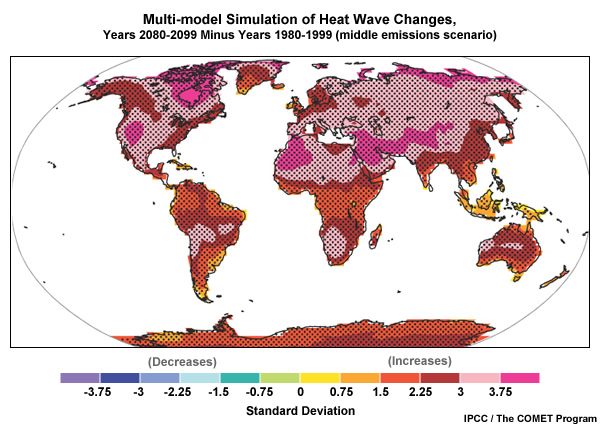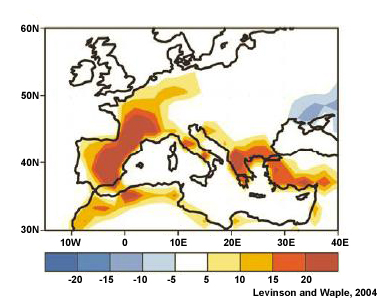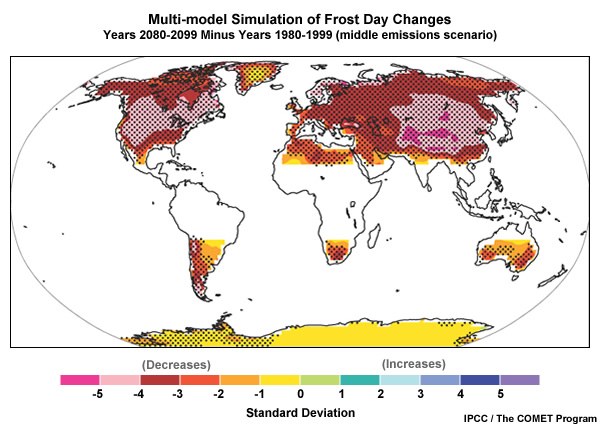Hotter Summers/Warmer Winters

Climate Change 2007: The Physical Science Basis. Working Group I Contribution to the Fourth Assessment Report of the Intergovernmental Panel on Climate Change. Figure 10.19 (b), Cambridge University Press.
Of course, there will always be natural variability, with some places and some years warmer or cooler than average. In general, however, summers will get hotter, not only because of higher temperatures but also because humidities will increase, raising the heat index, which is a measure of the effects of heat plus humidity on humans. A warming trend on top of natural variability means that temperatures will cross today's heat thresholds more often.

Number of days with temperatures hotter than normal during the 2003 European Heat Wave.
For example, the summer of 2003 was the warmest in at least the past 500 years in Europe and resulted in over 70,000 deaths. Researchers wanted to know if this heat wave was simply an extremely unusual natural event or whether climate change created an environment that altered the pattern of natural variability. Using a climate model, they analyzed the probabilities of exceeding the 2003 seasonal mean temperature under 2003 conditions, including the build-up of greenhouse gases from human activities. They then ran the model again without those greenhouse gases. Their conclusion is that global warming probably at least doubled the chances of the heat wave. Models predict that in many places, an extreme heat event that we see once every twenty years today will happen once every three years by the middle of this century, and even more frequently by century's end.

Climate Change 2007: The Physical Science Basis. Working Group I Contribution to the Fourth Assessment Report of the Intergovernmental. Panel on Climate Change. Figure 10.19 (a), Cambridge University Press.
On the plus side, winters will be warmer in many places, reducing heating bills. And the number of days with frosts is likely to decrease. On the downside, it means more snow may fall as freezing rain, making ice more of a problem for motorists, pilots, and seniors.